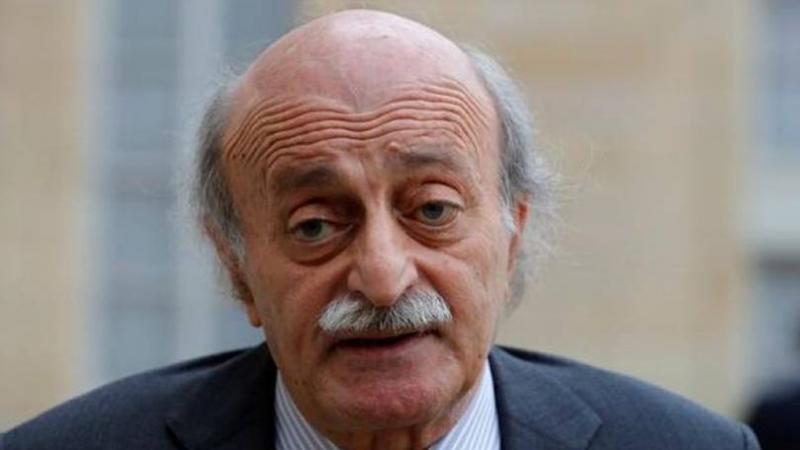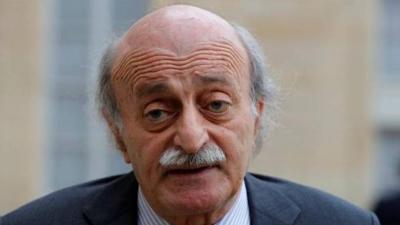In the current phase, akin to the stabilization of the internal situation without direct conflicts, discussions regarding the Progressive Socialist Party are minimal as they await further clarity on the presidential election. At that point, party leader Walid Jumblatt will return to the forefront. There has been a decline in talk about his role as a pivotal figure during a time that has not yet seen evident clashes, as attention shifted to "change" deputies before their internal disagreements surfaced, revealing their fragility.
However, Jumblatt's political position concerning the presidential matter transcends the number of votes his bloc can deliver to any candidate. He continues to support the candidacy of MP Michel Moawad for the presidency, actively endorsing his name on the ballot so far, without any significant disagreements emerging between him and the opposing factions, particularly the Lebanese Forces, despite differing views on some internal political paths. Some opposition forces are wary of Jumblatt's potential for a backward movement, but he has numerous considerations regarding the future of any settlement that may be reached ultimately.
Currently, according to political sources, this endgame means the continuation of the vacuum to its fullest extent until a settlement can be achieved, potentially involving the appointment of Army Commander General Joseph Aoun once the Christian factions exhaust their objections to the lack of constitutional amendments to facilitate his appointment or agreement on a collaboratively acceptable name. At that point, the priority would shift to elections, which might take precedence over a name that does not satisfy all Christians.
However, Jumblatt will not deviate from his alignment with opposition forces and is unlikely to engage in a battle with Christian opposition members or the Free Patriotic Movement regarding the selection of the new president, despite their root differences that have characterized years of governance and beyond. Although President Nabih Berri is one of the most capable in persuading Jumblatt towards a governmental settlement or the restoration of previous trios by supporting the head of the Marada Movement, Sleiman Frangieh, Berri has yet to secure Jumblatt's endorsement, as Jumblatt has consistently insisted since the beginning that he will not support Frangieh.
He has advised his associates and interlocutors not to proceed with Frangieh multiple times and has articulated the essence of his objections and the implications of his election on the internal situation.
Jumblatt's calculations extend beyond the position on Frangieh or the lack of comprehensive internal satisfaction and the blessing of Riyadh, or even compatibility with the Saudi umbrella for opposition presidential aspirations. Those who do not understand the true condition of the mountain are unaware of how much it underpins many of Jumblatt's decisions and his vision for future relations among Lebanese components. The mountain holds a particular importance for him, unlike any other region for any political leader. It remains his primary concern and focal point in discussions with Hezbollah, Sunni leadership, and Christian forces that either joined the mountain reconciliation or remained outside of it at the time.
Discussing the specificity of the mountain is not merely about the occasional circumstance Jumblatt draws upon during challenging times. It stems from a deep understanding of the land, particularly influenced by political conflicts and the sharp, often harmful political discourse that affects the reality on the ground, especially with increasing fears of non-unifying tendencies, particularly within the Christian sphere. Therefore, Jumblatt aims to neutralize the mountain in his approach to presidential choices, avoiding provocations at inappropriate times.
In addition, he is uninterested in endorsing a presidential candidate who does not hold political or popular presence in the mountain, nor contributes to the mountain's political or social reality, especially given Frangieh's political presence limited to his own region. The decision to elect such a candidate at the expense of Christian majority consensus or that poses a provocation to them is not acceptable to him. This does not concern his choice of a presidential figure from either a pro- or anti-establishment side but rather signals his desire to avoid triggering the various Christian factions' sensitivities in the mountain by supporting an individual they cannot agree upon.
Fundamentally, what Jumblatt strives for is to avoid creating any tensions in a politically, socially, and economically challenging time that could be exploited, as any backlash from his presidential preferences could raise unnecessary sensitivities. He also knows there are parties, like the Free Patriotic Movement, capable of causing him troubles that have arisen before, which would add new burdens to his relations with the Lebanese Forces and the Kataeb Party. Thus, he seeks to pass this wasted time with the least losses possible, maintaining a balance with the opposition by supporting Moawad while keeping the door open for presidential dialogue with Berri, Hezbollah, and others. He knows very well how to maintain these balances with them, and they are genuinely aware of his concerns and reservations. When a settlement matures, he will be present, ensuring that no vibrations disturb the mountain.




